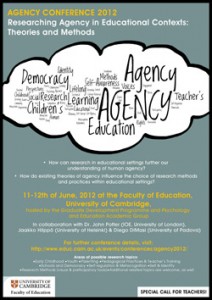The UCL Energy Institute is a multidisciplinary department where it is common to hear energy issues discussed by engineers, physicists, architects and geographers (and representatives of other disciplines). In this respect I’m accustomed to the variation in language and approaches applied in these fields. I wasn’t prepared for what an eye-opener it would be to attend, and present at, a conference so completely outside the realm of my day-to-day experience – that of education.
My current work revolves around primary school energy education but the principal goal, aligning with that of the LoLo Centre, is reducing energy use in buildings – in my case through gaining a better understanding of the way that family interactions can dictate household energy use. An interesting facet of the work is the idea that children can act as change agents in the “energy life” of a household, using their relative expertise in energy issues (gained in school) to alter that household’s energy behaviour. The child’s capacity to act is this way can be described as their “agency” – and it was to get the chance to discuss in more detail this aspect of the work I decided it would be interesting to send an abstract over to the Agency Conference 2012.
I should start out here by stating that I found the conference sessions, stretching over two days, fascinating and of great relevance to my own work. But for a lot of the time I was acutely conscious of the gulf between my own background and that of most of the other conference attendees. Bodies of theory which people referred to as common knowledge were entirely new to me. Previously simple (to me) concepts such as “storytelling” gained new and complex meanings, while I grappled with ideas like habitus. My work employs focus groups, which for many energy researchers is as close to the “soft” idea of social science as you can get. At this conference I heard about the risks of suppressing children’s voices through this technique, and about alternative approaches which empower them to become “co-researchers”.
I’ve been thinking recently about the marginilization of many people’s voices in most energy research, not least those of children. I’d hoped that my work made a decent stab at resisting this, but have the impression now that we’re only sniffing around the edges of the wealth of information which could potentially be unlocked through the application of approaches from more traditional social science fields (such as education). I’m helping out with the new UCL Energy Social Sciences Research Group which launched on 13 June. If the attendance figures for that are anything to go by, there is certainly a robust interest in seeing the increased, and improved, employment of these techniques in the energy field.
By Mike Fell, Doctoral Researcher (MRes)

